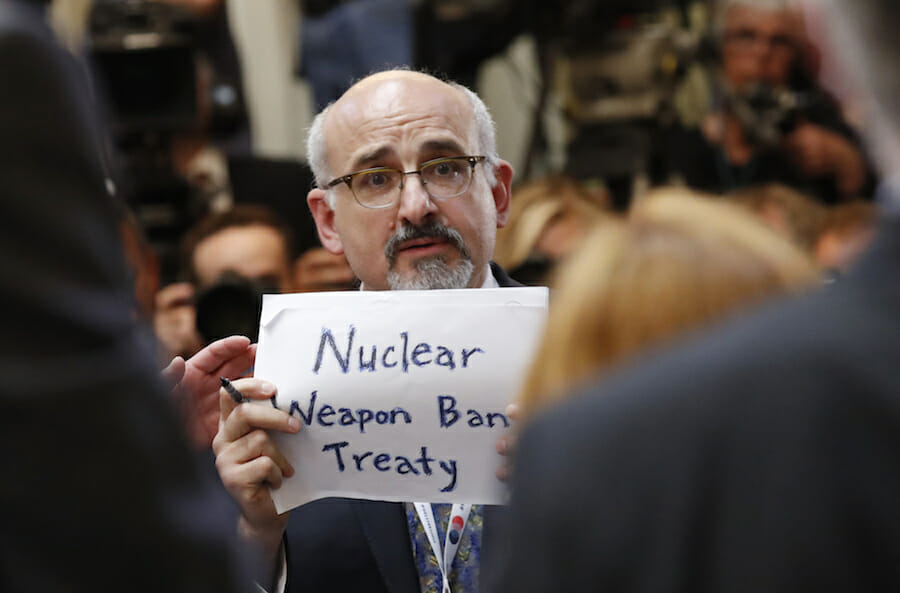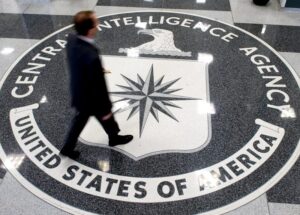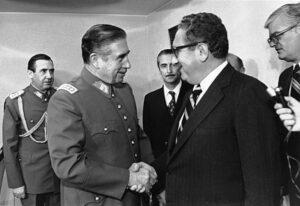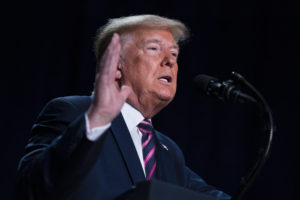What Those Joint Editorials Denouncing Trump Conveniently Left Out
I was dragged out of the conference in Helsinki. If the media want a free press, they must first confront their own hypocrisies. Journalist Sam Husseini, reporting for The Nation magazine, displays a sign before being forcibly removed from a press conference after Donald Trump and Vladimir Putin met in Helsinki, Finland, in July. (Pablo Martinez Monsivais / AP)
Journalist Sam Husseini, reporting for The Nation magazine, displays a sign before being forcibly removed from a press conference after Donald Trump and Vladimir Putin met in Helsinki, Finland, in July. (Pablo Martinez Monsivais / AP)
On Thursday, at the initiative of the Boston Globe, hundreds of newspapers purported to stand up for a free press against the destructive rhetoric of Donald Trump. It was also the one-month anniversary of my arrest at the July 16 Trump-Putin summit in Helsinki, in which I was dragged out of the news conference and locked up until the middle of the night.
As laid in my cell, I chuckled at the thought of the city’s billboards proclaiming Finland the “land of free press.” Let’s say I’ve grown an especially high sensitivity to both goonish behavior toward journalists simply doing their jobs and to glorified marketers masquerading as defenders of media freedoms.
As some have noted, the editorials in question will likely help Trump whip up support among his base against a monolithic press. Just as clearly, the establishment media can draw attention away from their own failures, corruptions and falsehoods, simply by focusing on Trump’s.
Big media outlets need not report news that actually affect your life and point to serious solutions for social ills. They can simply bad-mouth Trump. And Trump need not deliver on campaign promises that tapped into populist anger that has grown in reaction to years of elite rule. He need only deride the major media.
Together, the two are frenemies, engaged in an elaborate game of logrolling. The major media built up Trump; Trump’s attacks effectively elevate a select few media celebrities.
My case is a small but telling one. From the start, major media outlets were more likely to misinform about the manhandling I received in my attempt to ask about U.S., Russian and Israeli nuclear threats to humanity than to crusade against it. (I’ll soon give a detailed rebuttal to the torrent of falsehoods, some of which I’ve already noted on social media). But examples are too numerous to count.
None of the newspaper editorials I’ve seen published, for instance, mention the likely prosecution of Wikileaks. If there were solidarity among media, the prospect of Julian Assange being imprisoned for publishing U.S. government documents should be front and center.
Neither have I seen much mention of RT or, as of this week, Al Jazeera, being compelled to register as foreign agents. State Department Spokesperson Heather Nauert has openly refused to take questions from reporters working for Russian outlets. This virtual silence is born, in part, of the media’s depiction of Russia as the great enemy, which lets U.S. government policy around the world off the hook. Unlike the rhetoric that demands so much of today’s news coverage, all of these are concrete actions the Trump administration has taken against the media.
Then there’s the threat of social media.
In my day job, I work for the Institute for Public Accuracy. Yesterday [Aug. 15], I put out a news release titled “Following Assassination Attempt, Facebook Pulled Venezuela Content.” Tech giants can decide—possibly in coordination with the U.S. government—to pull the plug on content at a time and manner of their choosing. You would think newspapers might be keen to highlight the threat that such massive corporations pose, not least of all because they have eaten up their ad revenue.
The sad truth is that this is what much of the media have been doing for decades. Contrary to the lofty rhetoric of this week’s editorials, the promise of an independent and truth-seeking press has frequently been subservient to propaganda that pushes for war or advocates on behalf of a narrow set of economic interests.
Another major story of the week—one quite related to this—is that of Trump pulling former CIA Director John Brennan’s security clearance. NPR has called it an attempt to “silence” political dissent. But Brennan had an op-ed in Thursday’s New York Times and frequently appears on major media. If anything, the president’s actions have only elevated the former Obama official’s major media status.
The ones who have truly been silenced in the “Trump era” are those who are critical of the seemingly perpetual U.S. government war machine since the invasion of Iraq.
Trump’s attacks on establishment media—like many media attacks on him—are frequently devoid of substance. But in one of his more revealing tweets, he recently argued that the press “cause wars.” (I would say “push for war,” but that’s quibbling.)
Trump is technically right on that point, but he’s hardly one to talk, as one of the primary beneficiaries of the very compulsion he claims to deride. When he exalted U.S. bombing strikes in Yemen, Syria and elsewhere, CNN infamously called him “presidential.”
Many consider “Russiagate” to be the president’s achilles heel, and yet the two reporters called on at the the Helsinki news conference focused on precisely that, which in turn led to Brennan and others attacking Trump as “treasonous”. Meanwhile, established collusion between the U.S. and Israel has been ignored as the two governments attempt to violently reorder the Middle East.
The need for genuinely free sources of information is greater than ever. It remains unclear if traditional newspapers can be part of the solution. More likely, the institutions desperately needed to carry out that critical mission are yet to be born.
This article first appeared on Sam Husseini’s blog, Posthaven.
Your support matters…Independent journalism is under threat and overshadowed by heavily funded mainstream media.
You can help level the playing field. Become a member.
Your tax-deductible contribution keeps us digging beneath the headlines to give you thought-provoking, investigative reporting and analysis that unearths what's really happening- without compromise.
Give today to support our courageous, independent journalists.









You need to be a supporter to comment.
There are currently no responses to this article.
Be the first to respond.